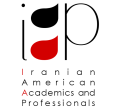Where: Montgomery Community College (Rockville Campus) – Humanity Building (HU), Conference Room 009 (Get Directions, Campus Map )
Language: Farsi

Synopsis:
This talk covers the discussion of drug development/approval from discovery to market in USA. All clinical products must go through the FDA approval process before they are allowed to go to the US market. This includes all clinical products that have been approved and are being used in other countries. That is after their animal tastings, and before the human testing they must go through FDA approval and review process.
The FDA approval process on average takes around 10 years and costs on average around 100s of million dollars for each clinical product. Maryland in general and Montgomery County in particular houses hundreds of pharmaceuticals, biotech industries and especially it houses the National Institutes of Health (NIH) and Food and Drug Administration (FDA). These two institutions are the essential parts of the clinical research and review in the US.
About the Speaker:
Dr. Kazempour is the President and CEO of Amarex Clinical Research since 1998; in addition he is teaching at The George Washington University, and serving on GW Regulatory Affair Advisory Board. Amarex Clinical Research is a global clinical research organization, working with international pharmaceutical, biotechnology, medical device companies, and the National Institutes of Health (NIH).
Dr. Kazempour received his MS and PhD degrees in Statistics from Colorado State University and began his career as a mathematical statistician by working at the Genetics Institute in 1975. He has worked in multiple therapeutic areas including anti-infective, AIDS, cardiovascular diseases, vaccines, and wound healing. He has chaired, established, presented to, and participated in, several Data Safety Monitoring Boards for compounds within his area of expertise, and has authored and refereed numerous publications and technical reports both in/for mathematical statistical journals as well as clinical literatures.
Dr. Kazempour has presented, and participated in hundreds of US Food and Drug Administration FDA meetings as well as other regulatory bodies around the world. His expertise has earned him multiple recognition awards from the FDA for his contributions to the drug approval process, particularly for his work on HIV and AIDS clinical trial designs and analyses. He has conducted presentations to the FDA meetings and FDA advisory committees on more than 50 different clinical trials and medical devices ranging from Antiviral, HIV to septic shock, to Diabetics and wound healing.
Fee (including dinner): $5 Students, $15 Public
Please click here to RSVP.



